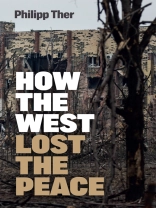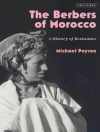When the Berlin Wall was stormed and the Soviet Union fell apart, the West and above all the United States looked like the sole victors of history. Three decades later, the spirit of triumph rings hollow. What went wrong?
In this sequel to his award-winning history of neoliberal Europe, the renowned historian Philipp Ther searches for an answer to this question. He argues that global capitalism created many losers, preparing the ground for the rise of right-wing populists and nationalists. He shows how the promise of prosperity and freedom did not catch on sufficiently in Eastern Europe despite material progress, and how the West lost Russia and alienated Turkey. Neoliberal capitalism also left the world poorly prepared to cope with Covid-19, and the pandemic further weakened the Western hegemony of the post-1989 period, which is now brutally contested by Russia’s war against Ukraine. The double punch of the pandemic and the biggest war in Europe since 1945 has brought to a close the age of transformation that was inaugurated by the end of the Cold War.
This penetrating analysis of the disarray of the post-1989 world will be of great interest to anyone who wishes to understand how we got to where we are today and the tremendous challenges we now face.
Зміст
Preface: The Great Transformation after 1989
1. From Neoliberalism to Antiliberalism: The Enduring Relevance of Karl Polanyi
2. Lost Social and Political Equilibrium: The USA after the Cold War
3. The Price of Unity: Germany’s Shock Therapy in International Comparison
4. La Crisi: Italy’s Decline as a Portent for Europe
5. The West, Turkey and Russia: A History of Estrangement
6. Eastern Europe as a Pioneer: Polanyi’s Pendulum Swings to the Right
7. Systemic Competition during the Covid-19 Pandemic
Afterword: A Bad End: The War against Ukraine
Postscript and Acknowledgements
Notes
Про автора
Philipp Ther is Professor of Central European History at the University of Vienna.












